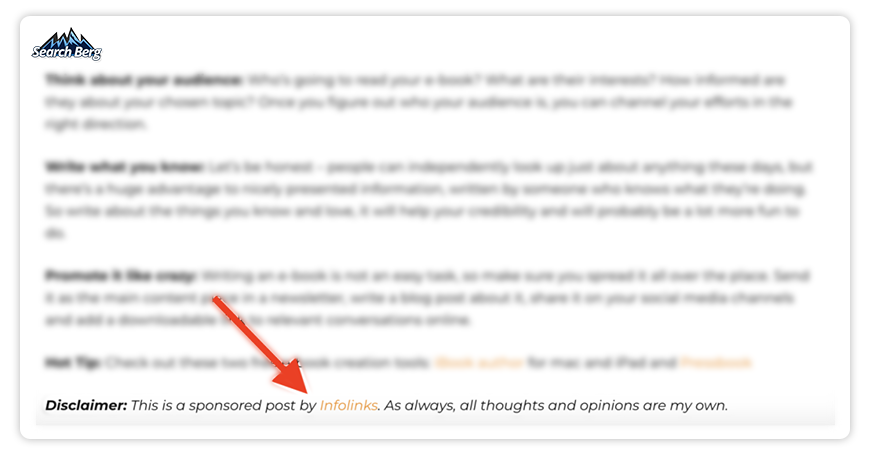Guest Blogging Goldmine for Lawyers: Expand Your Reach & Reputation

Lawyers must network to get their name out there. They must build relationships to become visible to a new audience, who, in turn, drive more clients to their law firm through word-of-mouth.
News flash: That’s precisely what guest blogging does!
Just replace “audience” with “traffic” and make it do all the work. You can use the strategy to become a thought leader and earn a backlink to your firm’s website or social media platforms.
Let’s introduce a brief blow-by-blow of the creative guest blogging process.
What is Guest Blogging
A guest blog is created by you but posted on relevant third-party websites. As a rule of thumb, these websites should have the following:
- A high domain authority.
- Moderators should accept guest posts from lawyers.
- State your name in the byline.
- Link back to your firm’s website or social media platform.
The following websites tick all of the above boxes. They let you maximize the benefits of search engine optimization (SEO) and content marketing.

| Website | Domain Authority (DA) Score |
| 1. LexisNexis.com | 88 |
| 2. Azcentral.com | 87 |
| 3. BloombergLaw.com | 86 |
| 4. Law360.com | 84 |
| 5. RocketLawyer.com | 84 |
| 6. AbovetheLaw.com | 79 |
| 7. USLegal.com | 77 |
| 8. TheLawSocietyGazette.com | 76 |
| 9. HongKongFreePress.com | 75 |
| 10. LawDepot.com | 73 |
| 11. DivorceMag.com | 71 |
| 12. LawTechnologyToday.com | 70 |
| 13. AttorneyatWork.com | 69 |
| 14. LegalCheek.com | 67 |
| 15. LegalNews.com | 64 |
Read More: Proven Link Building Tactics to Boost Your Law Firm’s SEO
Google’s Stance on Guest Posting

Google’s stance on guest blogging has remained unchanged since 2017. The search engine doesn’t penalize guest posts seeking to inform, educate, and increase awareness of your company, message, and services.
However, it does penalize the following:
1. Similar Content
Suppose you asked eight websites to host your blog and got an affirmative from all eight; that doesn’t mean you should post the same content on all eight websites.
Google is smart at sniffing out similar content across multiple websites, especially if it also has the misfortune of being poorly written, researched, and unnaturally hyperlinked.
2. Absence of “nofollow”
Google wants you to clarify your relationship with links pointing to another website by adding the attribute rel=” nofollow” to the link’s code.

You must do the same for paid guest posts, except instead of nofollow, you’ll use rel=” sponsored”.

By adopting nofollow, you’re essentially saying that you aren’t using the site for SEO reasons—Spoiler alert: You totally are. It’s just that Google doesn’t have a good reason to penalize you.
3. Not Labeling Guest Blogs
Not labeling your content and making it appear like a host website’s internal content has twofold consequences.
Google ranks down unlabeled guest posts, but that’s nothing compared to the Federal Trade Commission, which metes out a maximum penalty of $43,792 for not labeling content-based ads.
Label your content like this guest post sponsored by Infolinks on Jeff Bullas to avoid these penalties.

How to Write an Amazing Guest Post

Guest post writing is different from blog writing. For starters, depending on the guest posting platform’s guidelines, it should have at least 800-1000 words, contain images, and be written with the following considerations.
1. Prioritize Informing Over Promoting
SEO is a byproduct of guest posting. Its primary goal is to educate the readers. Its secondary goal: to establish your legal expertise in the subject.
Reserve any information about your legal services for the author bio section, and don’t link to your law firm’s website or social media posts and stories unless it’s to prove a point.
3. Match the Format
Look up the format on the guest posting websites you plan to pitch your content. Take a look at this guest post from Above the Law. It has the following aspects:
- A bold title
- A subhead
- A byline with the writer’s name
- A single image aligned with the content
- Several bold H2 headings

Match your content’s format with the one on the hosting site. As for the content, it should satisfy search intent and should be written for your target audience.
3. End with a Bang
Close your post with a call to action that is too hard to resist. You can link to your website here, but no more than once or twice (depending on the platform’s guidelines).
The link(s) shouldn’t overtly promote your legal services. Plus, you can always ask readers to leave a comment or close your post with a question to kick off a discussion in the comments section.
4. Add an Author Bio
Author bios should be clear and concise and explain what makes you a good authority on the content.
In other words, it should have your background, achievements, experiences, and a bit of what you’re up to today for a personal touch. Some authors also add a human element by talking about their personal interests and hobbies.
You may close the bio with a “Follow me on [Insert social media profile link].” However, this depends on whether or not the guest posting platform allows it, and the total number of linkbacks you’re allowed to include.
And there you have it, folks! That’s an overview of what makes a high-ranking guest blog different from a low-ranking guest blog. Now, all that’s left is finding a lawyer or paralegal to take one for the team.
Don’t have one? Not a problem!
Search Berg: The Ultimate Blogger Outreach Service for Lawyers
Search Berg can be your leg up the Google SERPs—your gateway to more organic traffic and lead conversions. Avail our guest posting services for lawyers to build your client base.
You can focus on the legal matters and getting favorable outcomes, while our expert guest blog writers work on establishing you as an authority in the industry, and consequently help you grow your practice.
Use the best SEO practices to increase visibility and awareness through effective, penalty-free link building and content marketing.
Just say the word!














